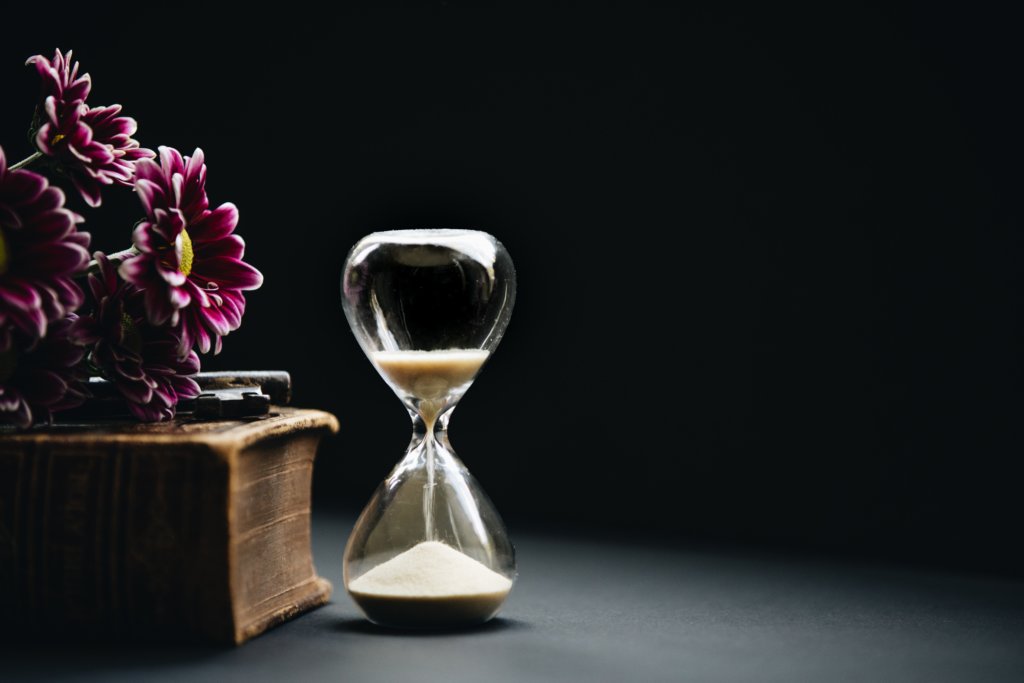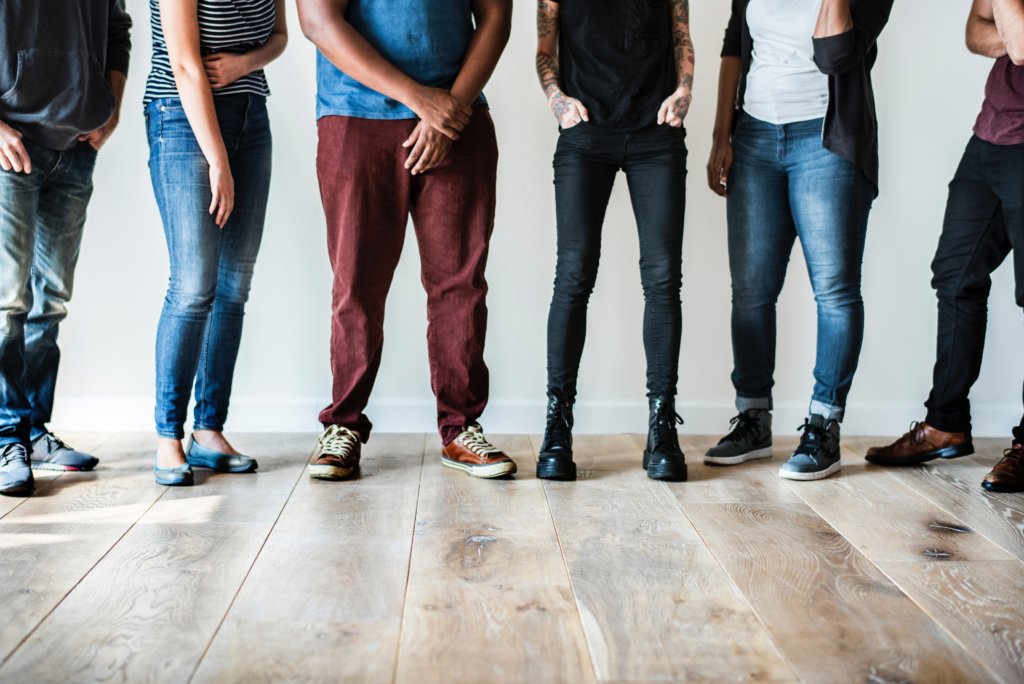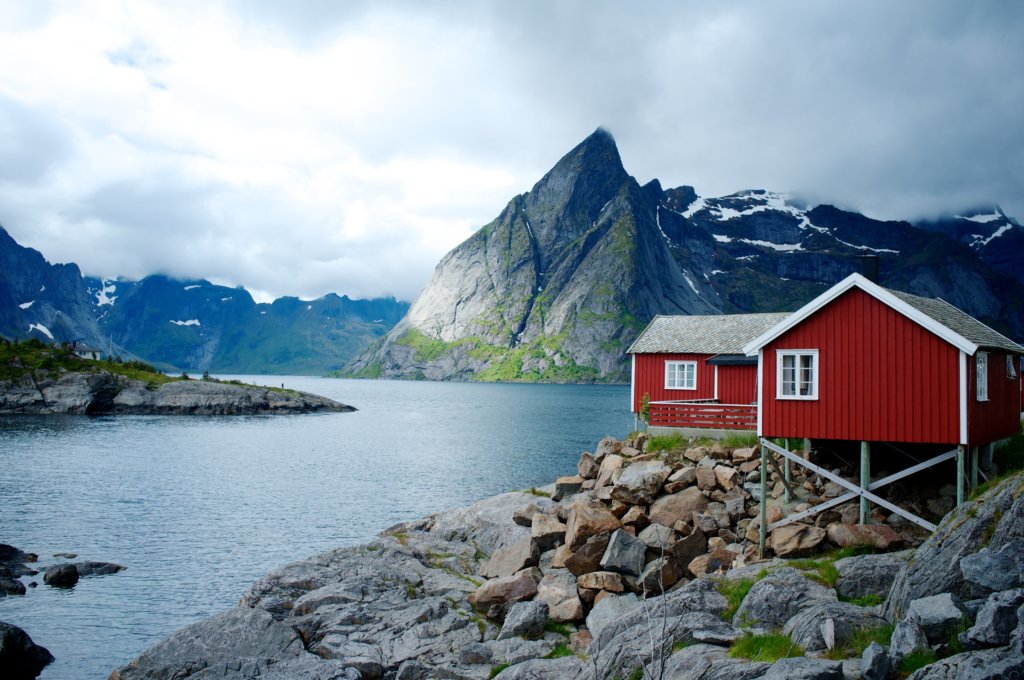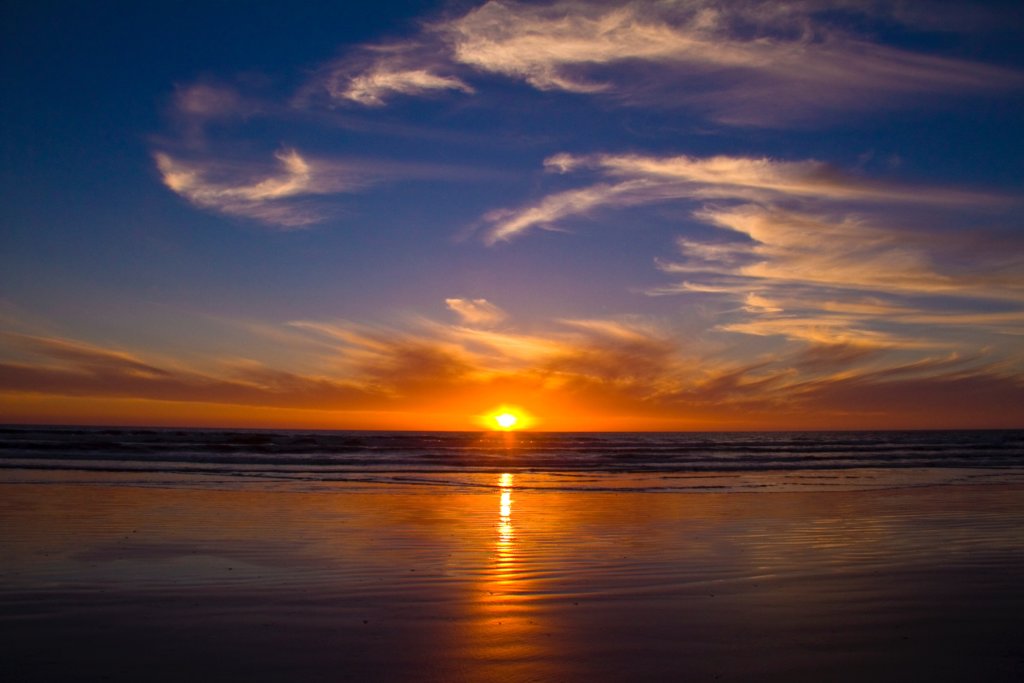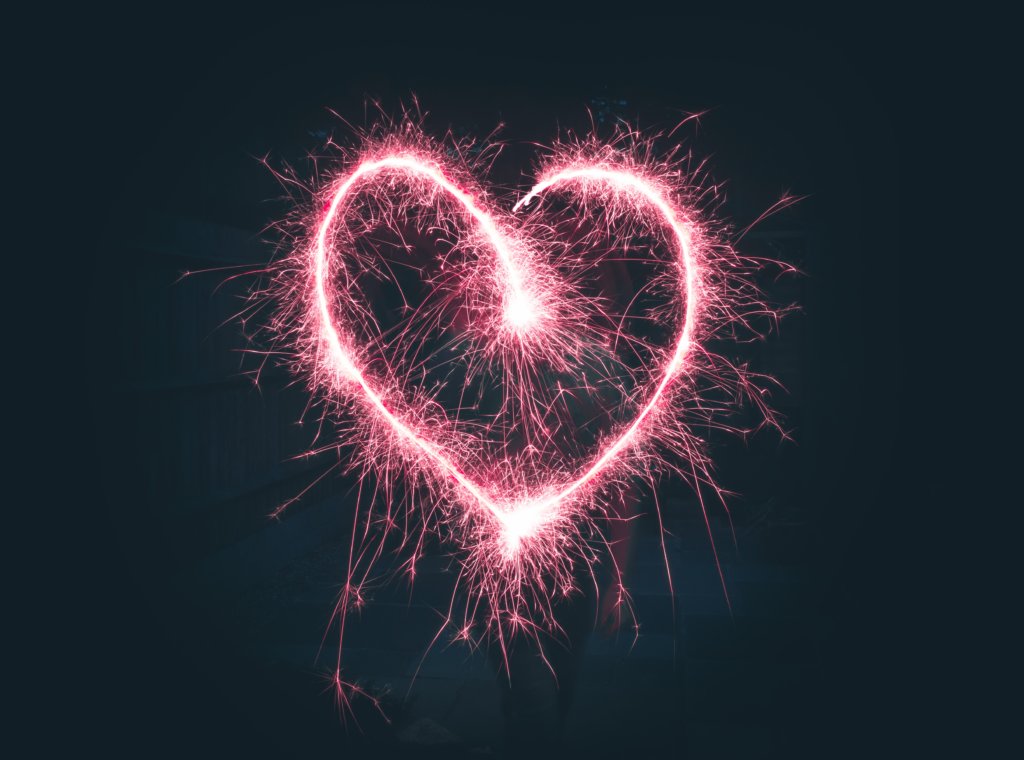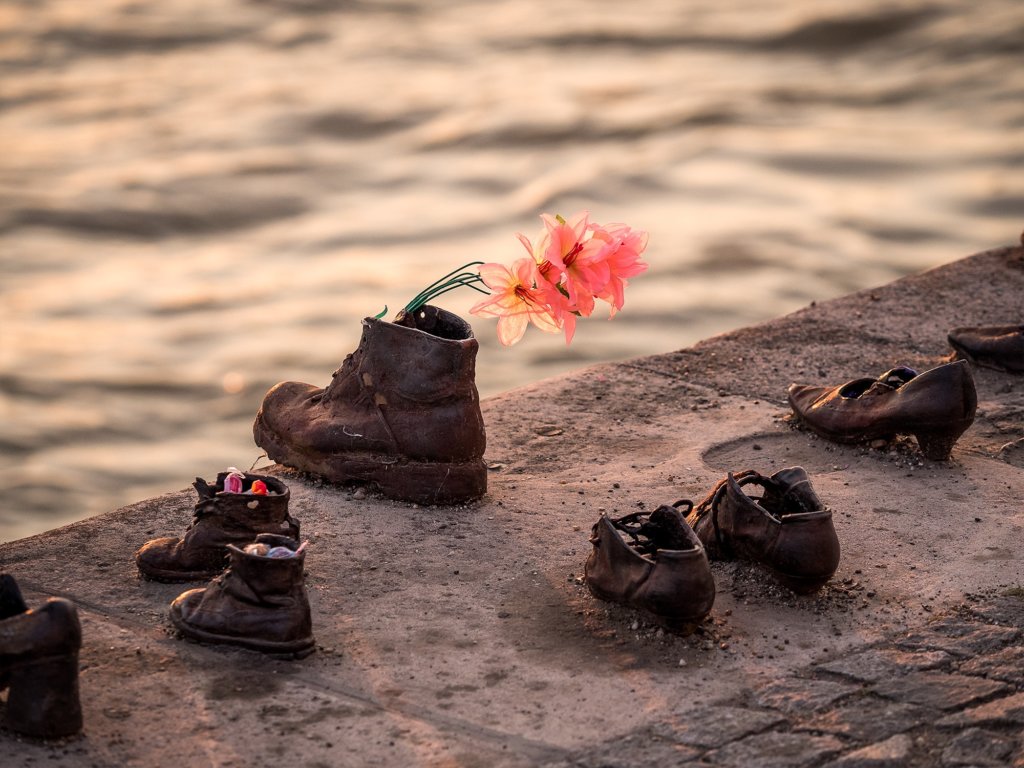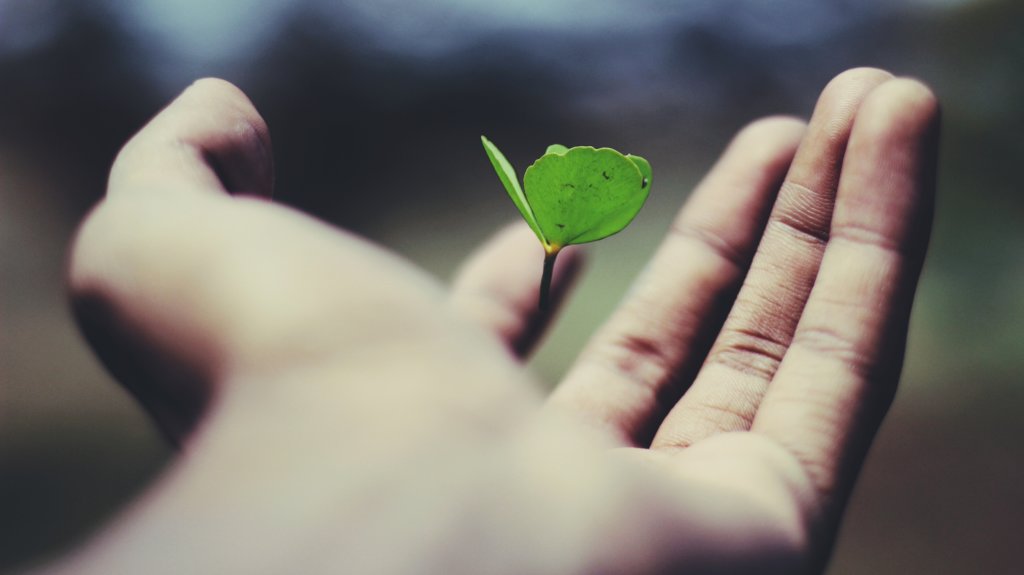This weekend I met someone formerly associated with my yoga and meditation group way back in the 70s when he lived in Atlanta. That may not seem especially remarkable, but it’s literally never happened to me before. I’ve met people who had some exposure to it, but not people who engaged with the practices and then drifted away. My yoga and meditation group, while worldwide, is small and the chances of an affiliation with it coming up in a first conversation with someone at a party is unlikely. I grin thinking about the encounter from this weekend because it reminds me the universe is not random and chaotic. There is an order and an intelligence at play of which I get glimpses sometimes.
I take comfort in believing order and intelligence reigns because there are a lot of things going on in the world and in my life that I don’t understand, that I wish were different. There are certain elected officials I wish weren’t in office. There are certain policies I wish were abolished. I wish my body reacted differently to certain foods. I wish I didn’t have certain ailments. And when I spend all my time wishing things were different – while also working to change them – I get frustrated and feel like I’m beating my head against a brick wall. I easily succumb to despair. When life throws a little magic, a little synchronicity my way, hope flares up again and I’m reminded that perhaps I’m unable to see the whole picture. That I’m a character in a play that only knows her lines and not the lines of everyone else.
The other reason I appreciate the encounter from this weekend is the demonstration that things circle back. The man I met hasn’t been an active member of my group for nearly 50 years and now he might pick it up again. In my mind, if something doesn’t happen in the short term, it will never happen. I have big dreams and at the moment it seems like I’m veering away from them. I have sadness about that because these dreams are near and dear to my heart, but at the moment they aren’t feasible given my energy levels and my financial situation. Does that mean I give them up for good?
Intellectually I understand the answer to that question is “no.” I see many models in society of people who accomplished things later in life, but emotionally, the answer feels like a “yes.” The more reminders I have that things circle back, that dreams can be delayed, the better.
My spiritual teacher says that “whatever happens in this universe of ours is nothing but an expression of Cosmic desire or Cosmic will … when a human desire and His desire coincide, then only does the human desire become fruitful, otherwise it is a sure failure.”
Sometimes when I want something to happen doesn’t match up to when the cosmos wants something to happen. Sometimes the soil isn’t fertile enough. Sometimes you plant something and the yield is pitiful, but after adding nutrients to the soil, the yield is plentiful. I’m reminded here the universe is playing a long game. My recovery mentor says, “You’re looking at your watch while Higher Power is looking at the calendar.” My part I think is having patience, trust, and faith in the timing of things.
I dream of a world where we remember the universe has a long-term plan while many of us only think in the short term. A world where we recognize if we’re not ready for something just yet, it will circle back to us if it’s meant to be. A world where we realize while it may not seem so on the surface, the world is an ordered, intelligent place.
Another world is not only possible, it’s probable.
I’m sick right now so I can’t guarantee the eloquence of this post, but I wanted to write something anyway because I feel passionately about this topic. I’m observing a few things going on in the world right now. Tension is high. People are pissed, rightly so, at all the injustice running rampant. I’m not a sexual assault survivor, but I was also affected by the Ford-Kavanaugh hearing. To listen to so many horrible stories from people and to witness some of the reactions to them didn’t make me feel good. Everyone wants to feel seen, heard, and respected and when we’re not, it’s painful.
I also notice people in power are pissed too. Again, one only has to look at Kavanaugh’s testimony to see that. He didn’t show up to the hearing contrite. He showed up belligerent, denying all accusations. The New Yorker ran an opinion piece declaring the Ford-Kavanaugh hearing will be remembered as a “grotesque display of patriarchal resentment.”
These are the times we’re living in. From an astrological perspective, there’s a whole lot of “othering” going on, as in separating from others, erecting boundaries, and dehumanizing people. Astrology is not causal, it’s instead like a map, and in this instance, we as a society are demonstrating the disintegrated version of the Saturn:Pluto transit. Othering is not limited to sexism, its showing up everywhere. It shows up in the treatment of people of color, in immigrants, of the LGBTQIA community. Anyone who doesn’t fall into the majority is subjected to “othering.” What’s interesting for me to notice though is even those who are privileged and in the majority are not immune to being “othered.” I read an exchange on facebook where a white man posted something he thought was supportive of the #metoo movement and a woman blasted him for it because she thought otherwise. She said instead his post played into patriarchy, that he is part of the problem, that he’s another privileged white dude perpetuating the disempowerment of women.
I get where people are coming from and at the same time I’m reminded of a quote someone shared on facebook that struck me as relevant for the times we’re living in: “If you don’t heal what hurt you, you’ll bleed all over the person who didn’t cut you.” Yep. Lots of bleeding right now. Lots of hurt people walking around. We are all taking out our pain on each other.
What is the solution here? The solution I think is three-fold: One, to heal what hurt us, whatever that looks like. Two, I think it’s important to practice empathy, to understand the perspective of all our siblings. We don’t all have the same experiences, but we all have the same needs. There is more that binds us than divides us. Lastly, as philosopher P.R. Sarkar writes in his book, The Liberation of Intellect: Neohumanism, “You will have to carry the collectivity with you, because the collectivity is yours. The collectivity is not outside you – your future is inseparably connected with the collective fortune. You must take the entire collectivity with you and move toward the sweetest radiance of the new crimson dawn, beyond the veil of the darkest night.”
We are a collective, moving together. We are a universal family sharing the resources of this planet. We are like a garden filled with numerous flowers, but ultimately all a part of the same garden. Like flowers, on the surface we have different petals, different leaves. Some of us require more water and some of us require less, but we are all flowers. We all require care and attention and I truly believe we can make it so.
I dream of a world where we all work together to take care of each other. A world where we seek to understand our kith and kin. A world where we remember we have more in common than we might believe. A world where we realize there is no “other,” only us.
Another world is not only possible, it’s probable.
My apartment building is up for sale. Suffice to say, I’m freaking out about it because I’m worried I’ll have to move. To be clear, the building hasn’t been sold yet, there’s no evidence to support my anxiety, but it’s here nonetheless. It’s here because finding a place to live has proved challenging for me. I’ve moved 31 times in 33 years. From 2012 to 2015, I moved on average every three months. Something always forced me out – my landlady’s dog biting me and drawing blood, bad neighbors, an inhospitable landlady, etc. It’s always been something out of my control so my current situation is resurrecting a lot of trauma because this, too, is out of my control.
I spoke with a friend on Friday and she reminded me that even if I bought a house, something could happen like a wildfire or flooding. Those are real scenarios as we’ve all seen. There’s no absolute certainty, no guaranteed safety, and for an anxious person, that’s the last thing I want to contemplate. My friend and my therapist remind me real safety comes from the ability to respond to a situation. To pivot as necessary. Safety means rolling with the punches.
Right now I’d rather not roll with the punches, thank you very much. Right now I’d like to hide away under the covers and withdraw from the world. I don’t particularly want to write this blogpost either but I am because this is what I do, I write. I also know there are many people who feel similarly – maybe not about housing, but about something else.
Where do I go from here? From here, I fall back on my spiritual practices, where I always go. According to my spiritual philosophy there is an unchanging, absolute, eternal entity. Some people call that entity God or Cosmic Consciousness or Source or the Universe. The name doesn’t matter so much. My meditation is an effort to move ever closer to that unchanging, absolute, eternal entity and then to merge with it. One of the names for this practice in Sanskrit is Iishvara prańidhána. Iishvara means controller of the universe and prańidhána means to adopt something as a shelter. Therefore, Iishvara prańidhána means to adopt the controller of the universe as a shelter. It means to take refuge in the controller of the universe. That sounds academic, I know, but in essence it means to align myself with the divine.
What does that mean about my fear surrounding housing? It means one way to deal with the fear is to put myself in the Cosmic flow, to allow myself to be sheltered by something bigger than me. To accept the protection of my higher power with the nuance that bad things happen and good things happen and through it all I have a permanent, unwavering shelter.
I dream of a world where we take permanent shelter in something bigger than us. A world where we recognize certainty doesn’t come from things staying rigid but rather shoring up our internal strength and resilience to respond to stimuli. A world where we recognize there is an unchanging entity we can attach ourselves to and that’s where real security lies.
Another world is not only possible, it’s probable.
Something miraculous happened in my life recently. Not an Old Testament kind of miracle – no parting of the Red Sea or a burning bush. Nor have I received the modern-day version of a miracle where after one visit to one doctor I walked away cured. No, my miracles all arose after slow and steady progress. My miracles are of the incremental variety, but no less astounding.
For the past seven years almost to the day, I’ve struggled with sleep. Every day I woke up with brain fog, feeling like a zombie. I tried all of the things – diet, exercise, acupuncture, EFT, reiki, shamanic healing, ozone therapy, sleeping pills. Nothing made a huge difference. I still woke up every morning with what felt like cotton in my brain. I went through many, many cycles of hope and despair. I spent thousands of dollars searching for a cure. The sleep deprivation became so unbearable I took time off from work and slept in every day for weeks. It made no difference.
In July I did a sleep study, not expecting much. It felt like grasping at straws, another chance to try one more thing and at the very least see what was happening with my sleep. At first glance, the sleep study didn’t reveal much. In fact, the sleep clinic sent me a form letter advising I cut out alcohol, which is laughable because I don’t drink, ever. The sleep clinic professionals shrugged their shoulders and sent me on my merry way. I couldn’t accept that answer. Didn’t accept that answer. Even though the sleep study revealed I have mild sleep apnea, not enough for a CPAP machine, obviously something wasn’t right. How could it be if I couldn’t remember the last time I slept well?
I called a few sleep specialists and booked an appointment. I want to be clear here no intuitive voice urged me to call a certain doctor. I didn’t receive a nudge from the universe about any of this. I struck out in desperation. The sleep specialist diagnosed me with upper airway resistance syndrome, which is a close cousin of sleep apnea. Whereas in apnea breathing stops, with upper airway resistance syndrome, breathing is impaired. I’ve been wearing the device pictured below for more than two weeks and for the first time in seven years, when I wake up, I don’t feel like I have cotton in the brain.
I want to be clear here that I’m still tired. I still take a nap every day. I didn’t wake up after one night of using the device full of energy. It will be a slow build but I’m feeling different and that’s a miracle. Why am I telling you all this? For a couple of reasons. The first is if you or someone you know is tired all the time and has trouble sleeping, get a sleep study. The second reason I’m sharing all this is to say keep slogging away. You never know when change will happen.
Lastly, I share this story because it doesn’t fit in with any sort of mythology. I didn’t find what I was looking for when I stopped looking. Change didn’t happen when I accepted my situation. I didn’t hear any intuitive guidance steering me in a certain direction. Surrender didn’t help me with my diagnosis. What helped me, what brought me peace of mind, is thinking perhaps everything has a lifecycle. That my health condition had to play itself out and there was no amount of wishing, praying, fighting, or accepting that was going to change the situation. Like I wrote about in June, regarding my poppies, we can water flowers and give them sunshine, but when they bloom is not up to us. Maybe a lot of things in life are like that. Maybe there’s no formula to follow and instead we have to wait for whatever it is to play out.
I know it can be disheartening for some to contemplate how little control we have over certain situations, but I’m also writing to demonstrate change can happen and does happen. That a miracle can come at anytime. It could be seven years, or it could be seven minutes, but please, please keep going. I’m starting to cry because I struggled for so long, I honestly gave up hope that I would ever be able to feel well-rested ever again and now here we are. Well-rested is something quite likely in my future and that is a miracle.
I dream of a world where we realize miracles can happen at any time. A world where we keep going and then stop and then keep going again. A world where we recognize sometimes we just have to wait for things to change and not beat ourselves up about it. A world where we celebrate miracles, even when they’re small.
Another world is not only possible, it’s probable.
Life and death have been on my mind lately because two people in my community have died in the past three weeks. I notice in myself and others a tendency to ward off death as much as possible. We do what we can to prolong life because we fear death. Not only death in the physical realm, but in other arenas as well. We stay in dysfunctional relationships, jobs we hate, cities we loathe. We avoid going to therapy or addressing our addictions. We do all this because endings are scary, even if we know they’re warranted.
Right now I’m reading Clarissa Pinkola Estés’ Women Who Run With the Wolves. In it she addresses the wild woman archetype and tells stories to illustrate certain concepts. One of the more famous ones is the ugly duckling tale. The story that speaks to me the most right now is that of the Skeleton Woman. Click the link for an animated version of the story, but the abbreviated version is a fisherman hooks a skeleton woman and not realizing she is caught on his line, tries to run from her. He bumps along the land with the woman on his tail and dives into his hovel thinking he’s safe. Alas, it is not so. She is inside his home, limbs akimbo. In the candlelight he takes pity on her, untangling her from his line, righting her limbs. Then he falls asleep and a tear leaks from the corner of his eye, which the Skeleton Woman drinks up thirstily. While he’s still sleeping, she pulls out his heart, holds it in her hand and flesh is drummed back onto her bones. She becomes a human again. She returns his heart and then falls asleep next to him, and “that is how they awakened, wrapped one around the other, tangled from their night, in another way now, a good and lasting way.”
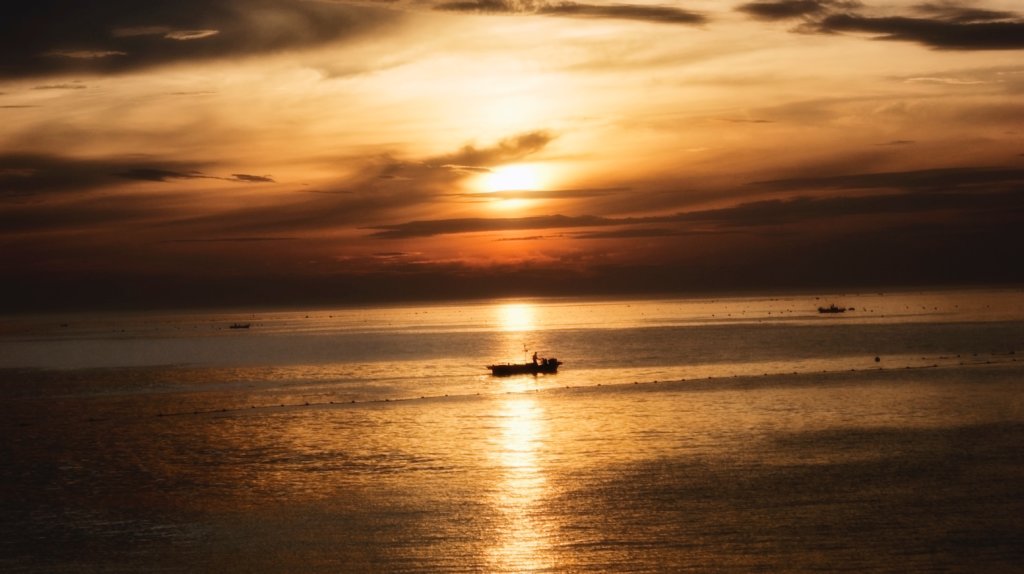
Whenever we catch something new, the Skeleton Woman is on the end of the hook. Photo by Lim changwon on Unsplash
Estés asserts for any relationship to survive and thrive, people must reckon with Lady Death, which is what the Skeleton Woman represents. They must welcome her into their home, tend to her, make peace with her in order to breathe life into something new. I think the principle applies not only to relationships, but all things. We must make peace with the fact a beginning will have an ending, followed by another beginning. I constantly forget that. When I experience an ending, some part of me still tries to hold on, as I wrote about last week.
On Saturday, I witnessed first-hand new life springing from death. I attended a grief ritual where I cried with others as they held me and I held them. I cried for someone I barely knew and I cried for things I couldn’t articulate. I bonded with people I only know in passing and felt a new closeness to them. All around me I observed a deepening of love for each other. A group of people that otherwise likely wouldn’t have met. I viewed new life springing from tragedy. Do I wish we’d met in another context? Absolutely. And at the same time, death helped create something new. The more I give into and accept the life/death/life cycle, the more serene I feel. The less scared I am of the future and what could happen because I understand death will always bring something new.
I dream of a world where we embrace the life/death/life cycle. A world where we no longer fear death as something permanent and final, but instead see it as the precursor to something new. A world where we mourn, we grieve, and we accept we’ll always have to confront death in some form or fashion. But it doesn’t have to be as scary as we are led to believe.
Another world is not only possible, it’s probable.
All week I’ve bobbed along on an ocean of grief, coming in and out of numbness. Another community member of mine died, a monk from my yoga and meditation group. He had cancer so it wasn’t altogether unexpected, but still sad. I cried when I first heard the news and then I thought I was over it. Until I noticed I checked my email, facebook, and instagram a million times trying to dodge my grief. How I wanted to escape my life and be in someone else’s. Who wants to feel grief? Grief sucks.
In texting with a friend, I realized I have resistance to grieving, not only about this monk, but other losses in my life, because if I do, that means I’ve fully let go. It’s a real and final goodbye. And in order to keep the person a presence in my life, I’ve tried to block my feelings. Like a child who says, “If I don’t say goodbye to you then you can’t leave, right?” But they have and can and do. Whether I say goodbye or not doesn’t matter. And even when I do say goodbye, even when I know a person is knocking on death’s door, it still doesn’t mean I’m ready to bid them adieu. Is anyone ever truly ready to say goodbye to someone?
When I was much younger, I remember trying to comfort my dad after someone died. I tried to console him with the notion that we’re all still connected. That just because a person has left their physical body doesn’t mean the relationship has severed. Nor does it mean we won’t reunite, especially as he and I believe in reincarnation. I’ll never forget, he countered with, “Yeah, but we’ll never meet each other again in this life.” That’s what grief is; recognizing and honoring that loss. No amount of saying, “You’ll see each other again,” can sidestep the loss.
So I’m crying in fits and spurts. I’m also contemplating what my spiritual teacher said about the dissolution of ego. How many people are scared of merging with something bigger than themselves because they view it as annihilation. To describe the process he uses the metaphor of a salt doll and the sea. He says, “If a salt doll goes to measure the sea, it will melt into it. Neither can it measure the sea, nor will it ever return; its existence will merge into the vastness of the sea, releasing it from all cares and worries. If one wishes to take the form of the sea, one will have to become the sea itself; there is no other way.”
If I wish to continue progressing in this life, I have to become the sea itself. I have to let go. To feel the feelings that I’m blocking. And in doing so, I’ll come upon something bigger than me. The salt doll becomes the ocean. Perhaps the grief I feel is carrying me toward something else, something bigger that I’m unaware of. And instead of the loss of my friends as final, maybe I’m traveling to a place altogether new. I’m not sure. Only time will tell.
I dream of a world where we allow ourselves to grieve the dead. A world where we realize the relationship changes into something new. A world where we surrender to the process we’re undertaking and allow ourselves to be swept away, letting go of the old and embracing the new.
Another world is not only possible, it’s probable.
On Tuesday, I found out someone in one of my circles committed suicide. I didn’t know him well; we had a total of three interactions, but his death shocked me and shook me. All week I found myself crying for someone I barely knew. Hurting because people I am closer to are hurting. It pains me to see others in pain.
All week I’ve battled with myself because my tears don’t make much logical sense. Shawn and I talked about books. We didn’t swap secrets and peer into each other’s souls. How can I feel so sad about this death? In part it’s because I lost a community member, but also it’s because I’m empathic, sensitive, bighearted.
Growing up, I heard over and over again that I’m too sensitive, that I’m too emotional. I heard it so much I internalized it and now when I have big feelings, I judge myself for them. I want my emotions to match up to logic but oftentimes they do not. I realize sensitivity is a gift, but I still resist my feelings. I still want them to make sense, but they don’t. My therapist and other people tell me over and over again, “Just feel them. You don’t have to understand them. Just feel them.” Easier said than done. Easier said than done when feeling them means crying on the floor of my bedroom typing on my computer. Easier said than done when feeling them means sitting with the things I’m scared of instead of trying to talk myself out of feeling afraid.
When it comes down to it, I harbor a sense of shame about my sensitivity. I think there’s something wrong with me that I feel so much, so deeply. That I “should” be able to toughen up, to grow a thicker skin, to somehow become a different person. Friends, I have tried! With much earnestness I’ve tried, and yet here we are. There are certain things about us that are immutable and I’m understanding my big heart is one of them. I’m doing a lot of work on self-soothing and becoming my own emotional rock, but that doesn’t mean my feelings evaporate. All I’m left with is the choice to accept this is me, which is something I think Shawn would approve of.
Again, I didn’t know him well, but I’m reading memories and tributes to Shawn all over facebook and one of the things people write over and over again is how seen they felt by him. How loved. How accepted. In his death, maybe that’s something I can give to myself. I think he’d want that.
I dream of a world where we love and accept all parts of ourselves. A world where we feel our feelings even when they don’t seem to make sense. A world where we understand sometimes our feelings won’t match up with our brains. A world where we realize sensitivity is a gift and that it’s OK to be bighearted.
Another world is not only possible, it’s probable.
The other day in an email to my recovery mentor I wrote, “There is grace in limitation.” My eyes about bugged out of my head. I couldn’t believe I wrote that because I’m all about freedom, innovation, and unencumbered roaming, yet as I typed it, I realized it’s true.
From my perspective, U.S. culture lionizes pushing boundaries, tearing down walls, unhindered growth. All of that has its place, but so does maintaining boundaries, erecting walls, and hindered growth. I think about shoes. When my sister and I were little, we used to play dress up and wear our mother’s shoes. We clattered around in her too-big high heels, but we couldn’t competently walk in them. Her shoes contained too much space for our feet. In order to not trip over ourselves, we have to wear shoes that are only slightly bigger than our feet. We all need some limits.
Right now I’m living in the land of limits. My sleep is still terrible, my energy is still low. I’m possibly on a precipice of change but I don’t know for sure. I’m still in limbo, waiting to find out. And instead of rebelling against my situation like I normally do, for this week anyway I’m recognizing there is grace here too.
The message to me right now seems to be, “It’s OK to go slow. It’s OK to rest. It’s OK to take things easy, for life to be small.” I’m not zooming ahead. I’m not initiating new projects or learning new things. I’m sitting still and letting that be allowed.
I know I’ve mentioned this before, but my spiritual teacher characterizes movement as systaltic, like a heartbeat. A pulse. He said, “Now everything moves and that movement is of systaltic nature. Wherever there is any movement there is pulsation. Without pulsation there cannot be any movement. And this pulsation, that is movement through speed and pause, is an essential factor for each and every animate or inanimate object. Wherever there is existential factor there must be this pulsation. An entity acquires strength and stamina during the pause phase, and emanates vibration during the speed period. There cannot however, be any absolute speed or absolute pause in the created world.”
My takeaway from that is no matter what phase we’re in – speed or pause – is natural, normal. There is no period that’s wasted or bad or however else I sometimes think of the pause. The pause is just as crucial as the sprint because that’s where strength and stamina are acquired. There is grace here. There is good here. There is God here.
I dream of a world where we remember all phases of life are natural and normal. A world where we recognize the good in pausing, in stopping, in waiting. A world where we realize pausing is a crucial part of life. A world where we realize there is grace in limitation.
Another world is not only possible, it’s probable.
I feel vulnerable writing this post because the issue is alive in me. I haven’t moved past it. I can’t tie it up in a neat bow. I’m sharing though because this is the only topic that came to mind to write about, and also I know there are other people who feel the way I do. I’m hopeful my experience will help.
I am deeply unsettled by the murder of Nia Wilson from a few weeks ago. It speaks to one of my worst fears – a random act of violence. (I should mention here police don’t know for sure it was random. It could have been racially motivated but the murderer didn’t say one word to her or her sisters before attacking. Also, women of color experience higher rates of this kind of violence because the consequences are lower.) As for me, instead of viewing strangers as friends I haven’t met yet, I view strangers as people who mean me harm. In public I am constantly on guard. And considering Nia was murdered while at a BART station that I frequent, I’m more fearful than usual.
My therapist suggested I acknowledge the fear and remind myself what I can control. I’m in control of my breath, of whether I eat or not. I’m in control of how clean I am, etc. It helps me to think about those things. It also helps to remind myself my perspective is skewed.
This weekend I attended the San Francisco Aerial Arts festival, which was glorious. I went by myself and rode public transportation all the way there and back. Doing so I realized the vast majority of people don’t care about me one way or another. The vast majority are neutral. If I don’t bother them, they won’t bother me. Also at the performance, the sash from my trench coat trailed to the ground and a woman tapped me on the back to tell me so. She demonstrated to me while the vast majority of people are neutral, the remainder of people are good. They want to help. They care about complete strangers and will tell you if you drop something. And then a small minority of people wish me harm. Often it’s not personal and I could easily be swapped out for someone else.
Am I still reeling from the random act of violence? Yes I am. Do I still want to barricade myself in my apartment? Yes I do. And I have to reconcile those feelings with another truth: The world is delightful. People dance on the side of buildings. People sing so well they move me to tears. People paint something that engrosses me for hours. The world is wonderful and terrible. It’s beautiful and hideous. I wish that wasn’t so but it is. All that I can do is what anyone can do, which is continuing to be a good person. To serve others where I can, to stand up for injustice, to sow love instead of hatred, and do my part to leave the world better than when I entered it.
I dream of a world where we remember the world is more good than it is bad. A world where we realize most people are neutral, and those that aren’t are more likely good people than people who want to hurt us. A world where we help others according to our capacity.
Another world is not only possible, it’s probable.
I read an article in my university’s alumni magazine the other day about Andre Ingram, who at 32 became a rookie for the LA Lakers. Reading his story I teared up because the whole thing seems so surreal, so unlikely.
Since he was 8, Andre dreamed of playing for the NBA. He played in high school and then at our university. Once he graduated, he toiled for years in the NBA’s minor league. And I do mean toiled – he made $13,000 for the entire season in the minor leagues, which is less than what NBA players make for a couple of games. He tutored kids in math while his wife also worked. He says he thought about quitting several times, and some friends advised the same, or to find a better payday overseas. But he persisted.
“Every time I was ready to jump off that ledge something pulled me back,” he said. “Whether it was in training, when I’m hitting every shot I take, or in the weight room getting encouraged by the guys. My story is to let that voice, let that encouragement, pull you back in.”
Andre is the oldest American rookie in the NBA since 1964. His story fascinates me because at what point does a person give up on their dream? Sometimes a dream is a delusion. We’ve all seen those auditions on TV where someone thinks they’re an amazing singer or dancer and they have zero talent. To the rest of the world, it’s obvious the person will never be a star, but they can’t believe it. At what point is it harmful to keep believing a dream? At what point is it better to let it go? I don’t have the answers to those questions. I’m sure many people told Andre it was unlikely he’d ever play in the NBA. A 32-year-old with gray hairs competing against people 10 years his junior? What are the odds he could share the court with them? But it happened.
What struck me the most about Andre’s story is that quote I shared about how something kept pulling him back. Every time he wanted to quit, something kept him from doing it. That to me reeks of intuition, which my spiritual teacher defines as a reflection of consciousness or spirit. Just like a mirror, the reflection can become cloudy, but the more we connect to consciousness or spirit, the clearer the reflection will be.
Again, I don’t have all the answers, but it seems to me if something keeps coming up over and over again, it’s likely intuition. But if I get an idea in my head and convince myself it’s true despite all evidence to the contrary, it’s likely delusion. It seems to me there’s a fine line between a dream and a delusion. Perhaps the joy of being human is figuring it out. Sometimes we’re disappointed but sometimes we’re ecstatic. The thrill is finding out which we’ll experience.
I dream of a world where we walk the fine line between pursuing our dreams and dropping our delusions. A world where we keep going when something reels us back in. A world where we understand something may seem out of reach, but that doesn’t always mean it is.
Another world is not only possible, it’s probable.
